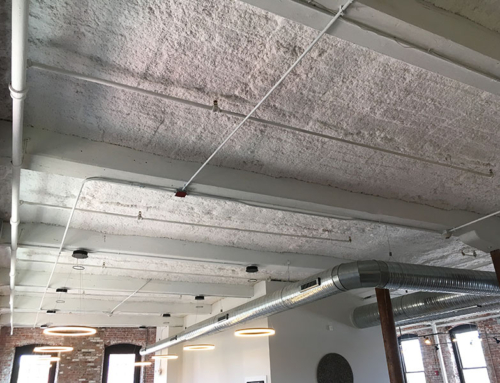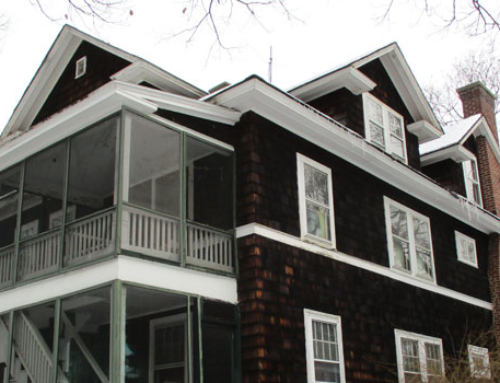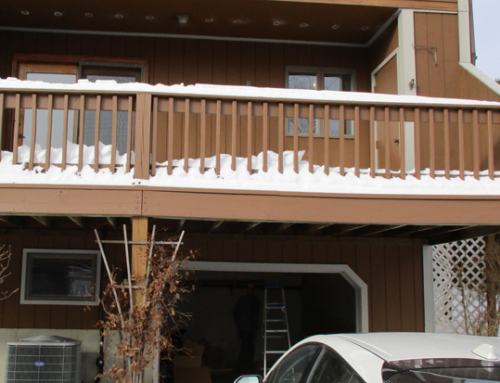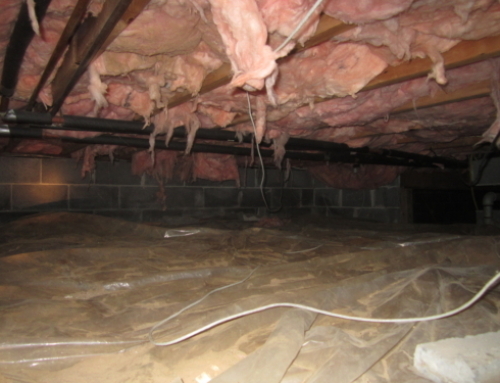Ted Staples of Reclaimed Energy is a MA architect, HERS rater, and BPI Certified home performance contractor. Below is Ted’s story and perspective of how the MA utility RCS programs have been a challenge for his company. As the MA utility RCS programs go through a slow evolution, industry experts like Ted are left on the side waiting to implement a true home performance model to achieve deeper energy savings in Massachusetts.
From Ted Staples of Reclaimed Energy:
I am an architect, with a career built on building science, primarily working in the commercial market. I am an avid supporter of the Home Performance Industry, and while I agree the current programs and initiatives have proven tremendously successful, I don’t necessarily agree that with respect to number of substantial home retrofits that will be needed in each of the next three years, home performance contractors can provide only a marginal additional [volume]. That may be the case because the industry is now in its infancy, but I believe, as do many, only through the creation of a Home Performance Industry of scale, can we achieve our Nation’s ultimate residential energy efficiency goals.
In 2007 I embarked on the start-up of a home performance component to my business, more or less, as a longtime interest and hobby. I became a HERS Rater, took BPI courses and became certified for BPI’s Building Analyst and Multifamily designations, I attended weatherization seminars, attended the National Fiber Training, attended the MassSave Boot Camp, attended and became certified for the EPA’s RRP Rule, and certified my firm. I have accumulated my own equipment, including blower doors, a duct blaster, an IR camera, a truck and various equipment, etc., I am capable of whole house energy retrofits.
As the Massachusetts Residential Conservation Services (RCS) Program provides free energy audits, with increasing sophisticated diagnostics, and considerable rebates for air sealing and insulation work to Massachusetts gas and electric customers of investor owned utilities, I am at a competitive disadvantage servicing these same customers, which represents a majority of the State’s population. I can’t compete against someone else providing a similar service for free. Even if my product is more comprehensive, the customer, at least initially, views it as the same. I am an acquaintance of Adin Maynard, and know several others in the home performance business, they are all at the same competitive disadvantage as I, and have been affected accordingly. That is not to say one can’t participate in the RCS Program, it simply means we cannot operate as a home performance contractor. This is one of the reasons why there are so many upset contractors and auditors; the RCS Program, although successful in its purpose, is a detriment to those trying to complete in the same market it serves.
In his October 19, 2009 unavailing of Recovery Though Retrofit, Vice President Biden identified a series of barriers which have prevented the formation of a self-sustaining retrofit market. Included was the fact that there are currently not enough skilled workers and green entrepreneurs to expand weatherization and efficiency retrofit programs on a national scale. In an effort to correct this, the White House Council on Environmental Quality facilitated an interagency process which is to include providing business development support to improve the rate of success for small efficiency retrofit businesses and to engage both small businesses and larger contractors in entering the retrofit market to build an industry at scale. The Report concluded that we can build on the foundation of the Recovery Act to jumpstart a thriving, private market for energy efficient and healthy home retrofitting that will put thousands of people back to work while also reducing our impact on the environment.
It is my opinion that to achieve the goals of Recovery Though Retrofit in Massachusetts , there must be an open and fair market for home performance services. Perhaps we don’t need to change the current RCS program, but we must at least provide an alternative program which the private market can be competitive with goods and services as similarly provided in the RCS Program. The incentives and compensation, whether it goes up or goes down is not as important as being fair and equal to all those who participate in the market. Without this key economical component, I don’t believe we can grow an industry to reach our goals. There are millions and millions of inefficient homes to be retrofitted, it will take an entire industry to do the job.
I understand the current Lead Vendors are required to operate at the highest standards, operate under a stringent set of evaluation, measurement, and verification requirements, and provide the utilities and the State with massive amounts of data about what they actually do, what it costs, what it saves etc., but I am confident that the skills required to perform these tasks is already possessed and/or could be trained to the existing and future private workforce. These are not ASHRAE investment grade audits performed by Professional Engineers; with a good set of rules and third party quality assurance, I believe this is quite achievable and there are many successful models in existence. The opening of the Massachusetts New Homes with Energy Star rater market is one of these examples. It can, and has been done.
In the future, home performance will extend deep into remodeling. Exterior insulation, rain screen siding systems, insulated roof decks, cost–effective triple pane (R–5) and low–E storm windows, etc. will be the norm if we are to follow through with our goals. To achieve this, home performance must be integrated into the roofing, siding, and window replacement industry – the entire remodeling industry must embrace home performance, and on the cover of every recent construction trade magazine, home performance is now mentioned, if not featured – this journey has begun. The existing HVAC industry will be required to integrate HRVs and dehumidification into their mechanical systems as we seal up the building envelopes and reduce drying potentials and affect indoor air quality. Energy specialists will need not only to know how to tighten an envelope, but will require a comprehensive, if not formal education in building science to negotiate the challenges of high performance buildings. We are in changing times, it is the evolution of the building performance; on behalf of Efficiency First, I would greatly appreciate the Massachusetts Department of Energy Resources’ support in the development of a thriving, private market for energy efficient and healthy home retrofitting that will put thousands of people back to work while also reducing our impact on the environment.
Very Sincerely,
Ted Staples, AIA LEED AP
Reclaimed Energy, Inc.
(978) 615-7185 Phone








